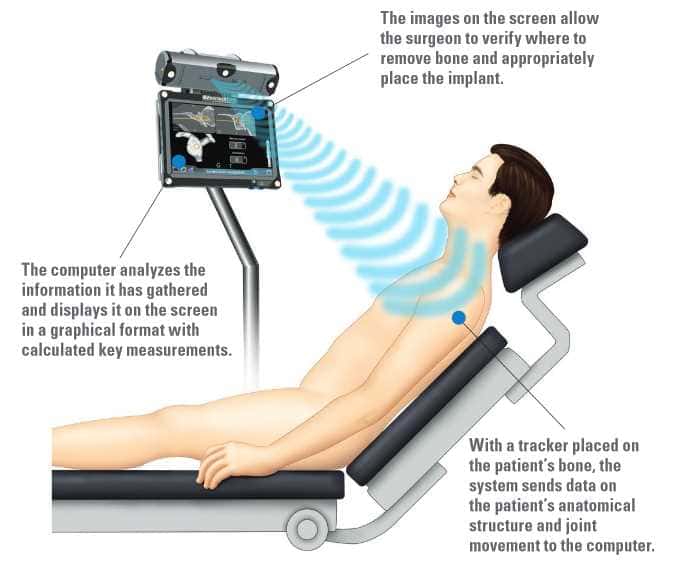ExactechGPS Shoulder FAQs
How common is total shoulder replacement?
Total shoulder replacement surgery replaces the damaged part of your shoulder to re-create the natural contours of the bones in a healthy shoulder. More than half a million procedures are performed every year in the United States alone.
How is total shoulder replacement performed using ExactechGPS®?

What are the benefits of ExactechGPS compared to traditional total shoulder replacement?
ExactechGPS pairs surgeon expertise with an advanced computer system to perform the patient’s shoulder surgery with a goal of improved accuracy and precision. The ExactechGPS Shoulder Application’s preoperative planning tool is designed to help surgeons understand their patient’s anatomy prior to surgery and plan the surgery through a virtual simulation. Surgeons can then execute their plan in real time during the surgery based on a 3-D anatomical model of the patient’s shoulder, making adjustments as needed. This unique technology gives greater visibility to the shoulder anatomy, allowing for more consistent and accurate implant placement.
How long do total shoulder replacements last?
When it comes to the longevity of a total shoulder replacement, every patient is different. It is widely recognized that quality design and materials contribute to the longevity and function of total joint implants. The Equinoxe Shoulder System has demonstrated excellent biomechanics and outcomes in its more than 10 years of use, as proven by more than 80 peer-reviewed clinical studies. Its design and materials, coupled with the use of ExactechGPS to improve shoulder alignment and implant placement, add to the probability of a long- lasting shoulder implant.
How long does the procedure take?
A total shoulder replacement typically takes approximately 60-90 minutes to complete. The total time from when the patient is brought into the operating room, anesthesia is administered, the procedure is completed, and the patient transported back into the recovery room is approximately two hours, but this will vary depending on your surgeon’s technique, the hospital’s procedures and your particular surgery.
Will I go home after surgery or go to rehab?
After surgery, home health care for wound checks, administration of any medicines, dressing changes, and for physical therapy, may be an appropriate option if the patient has been up and moving well while in the hospital and has appropriate help at home.
Another option is to be transferred to a rehabilitation facility. This would be similar to a skilled nursing facility, but with the ability to provide continued physical therapy. Your surgeon will discuss the appropriate post- operative care for you.
You will need the Adobe Reader to view and print these documents.
![]()

